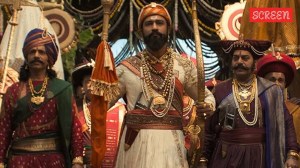More On Jo
A Pulitzer Prize-winning novel that complements Little Women

THE EPIGRAPH TO THIS PPULITZER Prize-winning novel, taken from Louisa May Alcott8217;s classic Little Women, has Jo and the other March girls thinking sadly about their father, who is 8220;far away, where the fighting was8221;. In March, Geraldine Brooks takes us to that scene, down to the fighting and the reconstruction, and shows us what it was like.
The novel opens in October 1861 with March writing a letter home. His tone is affec-tionate and cheerful, and he leaves out a great deal8212;the turkey vulture that stares at him from a sycamore branch, the violence and suffering of their Potomac crossing. But he writes on, from field hospital and from outside Harper8217;s Ferry, and his words reach yearningly out to the family he left behind in Concord when he joined the Northern forces as a chaplain.
While Emerson, Thoreau and John Brown make their appearances in these pages, the character of March is modelled on the re-markable Transcendentalist thinker, Amos Bronson Alcott, Louisa8217;s father. A man of deep liberal convictions, the autodidact Al-cott travelled down South as a peddlar, be-came an educator, and remained fuelled by a burning idealism that would keep his family struggling to make ends meet while he tried to set up an utopian community.
The young March, too, travels down South as an itinerant peddlar of books and baubles. He is first charmed by the elegance of the Southern way of life and then repelled by the cruel practice of slavery. Together with an ed-ucated slave woman, he begins teaching a slave child the forbidden skills of reading and writing. They are both punished for The transgression, but not in the same way.
Two decades later he meets her again, in the first year of the Civil War, when she is helping to tend to patients at the field hospi-tal.
March is then reassigned to a liberated plantation to work with 8220;contraband8221;8212;that is, the liberated slaves. He finds himself at a cotton plantation leased by an Illinois attor-ney who has taken it on a year8217;s lease. A paral-lel narrative continues in flashback, telling us of March8217;s marriage to the spirited Marmee.
A section of the novel narrated by Marmee provides her perspective of their relation-ship, his infidelity and the difficulties of living with an uncompromising idealist. This back-and- forth structure seems contrived, and this is one of the weaknesses of the novel.
Where the novel succeeds is in showing us the besieged terrain of the liberated planta-tion. This landscape becomes the site for the greater struggle that follows all declarations of victory8212;the battle waged inside the hearts and minds of the victors.
This is not a children8217;s book. It has some painfully violent descriptions Brooks has been a war correspondent. March asks the reader to look past the glory and see also the drab, ugly, everyday realities of war and its af-termath. It urges us not to forget present-day battlefields.
- 01
- 02
- 03
- 04
- 05































